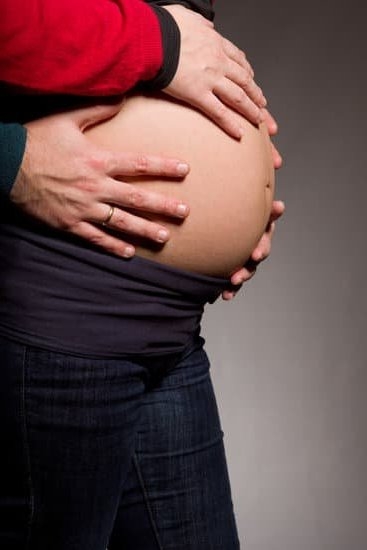When it comes to the exciting journey of pregnancy, many women wonder: how soon can you detect pregnancy? The early signs and symptoms of pregnancy can vary from woman to woman, but there are key indicators to look out for that may signal the beginning of this miraculous journey. From fatigue and morning sickness to changes in mood and breast tenderness, these signs can offer valuable clues to a possible pregnancy.
One of the most common ways to confirm pregnancy is through home pregnancy tests. These tests work by detecting the presence of human chorionic gonadotropin (hCG) in urine, which is a hormone produced during pregnancy. However, factors like the sensitivity of the test, timing of test administration, and individual hCG levels can affect the accuracy of early detection. Understanding how these home tests work can give women a better understanding of when they can expect reliable results.
It is essential to differentiate between blood tests and urine tests when it comes to detecting pregnancy. While both methods are reliable, blood tests are generally more accurate and can detect lower levels of hCG earlier in pregnancy compared to urine tests. Knowing when to take a pregnancy test for the most accurate results can help women navigate this exciting yet nerve-wracking time with confidence and clarity.
Key Indicators to Look Out For
When trying to determine if you might be pregnant, it is important to pay attention to certain key indicators that could signal early pregnancy. One of the most common indicators is a missed period, which is often the first sign women notice when they suspect they may be pregnant.
Other early signs of pregnancy include nausea, fatigue, breast tenderness, frequent urination, and heightened sense of smell. These indicators can vary from person to person, so it’s essential to pay attention to your body and any changes you may be experiencing.
In addition to physical symptoms, emotional changes can also be key indicators of early pregnancy. Mood swings, increased emotions, and a general feeling of unease or excitement can all be signs that your body is undergoing hormonal changes associated with pregnancy. While these emotional indicators are more subjective than physical symptoms, they can still provide valuable insight into whether or not you may be pregnant.
It’s important to remember that not everyone will experience the same set of indicators during early pregnancy. Some women may have only a few symptoms, while others may have multiple signs that point towards pregnancy. If you are unsure about how soon can you detect pregnancy based on these key indicators, it is recommended to take a home pregnancy test or consult with a healthcare provider for confirmation and guidance.
| Indicator | Description |
|---|---|
| Missed Periods | One of the first and most common signs of early pregnancy |
| Nausea | Feeling queasy or vomiting often in the morning or throughout the day |
| Fatigue | Feeling unusually tired even after getting enough rest |
How Home Pregnancy Tests Work
Home pregnancy tests have become a popular and convenient way for women to determine if they are pregnant in the comfort of their own homes. These tests typically work by detecting the presence of human chorionic gonadotropin (hCG) in urine, which is a hormone produced by the placenta shortly after implantation occurs. The accuracy of home pregnancy tests has improved significantly over the years, making them reliable tools for early detection.
To use a home pregnancy test, follow these simple steps:
- 1. Read the instructions carefully before taking the test.
- 2. Collect a sample of your first-morning urine, as it is more concentrated.
- 3. Use a clean container to collect the urine or hold the test under your urine stream for the specified time.
- 4. Wait for the recommended amount of time as per the instructions before reading the results.
It’s important to note that different brands of home pregnancy tests may have varying sensitivity levels when it comes to detecting hCG. Some tests can detect hCG as early as six days before your missed period, while others may require you to wait until after you’ve missed your period for accurate results. Remember that even with high sensitivity tests, it’s always best to confirm with a healthcare provider for certainty on how soon can you detect pregnancy.
Factors That Can Affect Early Detection
When it comes to detecting pregnancy early, there are several factors that can influence the accuracy of the results. One of the key factors is the timing of when you take the pregnancy test.
The levels of hCG (human chorionic gonadotropin) hormone, which is produced during pregnancy, vary depending on how far along you are. It is important to note that testing too early may result in a false negative, as the levels of hCG may not be high enough to be detected by the test.
Another factor that can affect early detection is the sensitivity of the pregnancy test itself. Some home pregnancy tests are more sensitive and can detect lower levels of hCG in urine, while others may require higher levels to produce a positive result. It is essential to read the instructions carefully and choose a test with higher sensitivity if you are testing early.
Additionally, certain medications or medical conditions can impact the accuracy of a pregnancy test. Fertility treatments containing hCG, certain medications for anxiety or seizures, and even some kidney diseases can interfere with the hCG levels in your body and lead to inaccurate results. If you suspect that any medication or health condition might affect your test results, it is recommended to consult with a healthcare provider for further guidance.
| Factors Affecting Early Detection | Impact on Pregnancy Test Results |
|---|---|
| Timing of Test | Risk of False Negative if tested too early |
| Pregnancy Test Sensitivity | Higher sensitivity detects lower levels of hCG earlier |
| Medications/Medical Conditions | Can interfere with hCG levels and lead to inaccurate results |
Blood Tests vs Urine Tests
When it comes to detecting pregnancy, one of the key decisions women face is whether to opt for a blood test or a urine test. Both types of tests have their own advantages and differences in terms of accuracy and timing.
Urine Tests
Urine tests are the most common method used by women to detect pregnancy at home. These tests work by detecting the presence of human chorionic gonadotropin (hCG) hormone in the urine, which is produced during pregnancy. Urine tests are convenient, easily accessible, and can be done in the comfort of one’s home without the need for a healthcare provider. However, they may not always be as accurate as blood tests, especially in the very early stages of pregnancy.
Blood Tests
Blood tests for pregnancy can be categorized into two types: qualitative hCG blood test and quantitative hCG blood test. Qualitative blood tests confirm the presence of hCG hormone in the blood, while quantitative blood tests measure the exact amount of hCG present.
Blood tests are considered more accurate than urine tests because they can detect lower levels of hCG earlier on in pregnancy. This makes them particularly useful for early detection purposes, especially for women who may have irregular menstrual cycles or are unsure about their last period.
When to Take a Pregnancy Test for the Most Accurate Results
When it comes to determining how soon you can detect pregnancy, timing is crucial. Taking a pregnancy test too early may result in inaccurate results, leading to potential confusion and disappointment. Understanding the most accurate time frame for taking a pregnancy test can help alleviate uncertainty and provide clarity for those eager to confirm whether they are expecting.
Understanding the Menstrual Cycle and Ovulation
To determine the best time to take a pregnancy test for accurate results, it is important to have a basic understanding of the menstrual cycle and ovulation. Typically, ovulation occurs around midway through a woman’s menstrual cycle, which is usually around day 14 for those with a 28-day cycle.
It is during this fertile window that conception can occur, leading to pregnancy. After conception, it takes a few days for the fertilized egg to implant in the uterus and start producing hCG (human chorionic gonadotropin), the hormone detected by pregnancy tests.
The Importance of Waiting for Missed Period
While some early pregnancy tests claim to detect hCG levels as early as six days before missed periods, waiting until after you have missed your period can increase the accuracy of the results. Most home pregnancy tests are designed to provide reliable results once your period is due or shortly after.
Testing too early may yield false negatives due to low hCG levels that are not yet detectable. Waiting until after your missed period can help ensure more reliable results and minimize the risk of false readings.
Understanding False Positives and False Negatives
When it comes to taking a home pregnancy test, it’s essential to understand the possibilities of false positives and false negatives. A false positive occurs when a test incorrectly indicates that you are pregnant when you are not, while a false negative happens when the test says you’re not pregnant when you actually are. These results can be influenced by various factors, including the timing of the test, user error, or certain medical conditions.
To help prevent false results, it’s crucial to follow the instructions provided with the pregnancy test carefully. Most home pregnancy tests recommend testing with the first urine of the day as it has a higher concentration of human chorionic gonadotropin (hCG), the hormone produced during pregnancy. Additionally, waiting until a few days after your missed period can also increase the accuracy of the results.
It’s important to note that even with accurate usage of home pregnancy tests, there is still a possibility of occasional false positives or negatives. If you receive unexpected results from a home test, it is recommended to follow up with a healthcare provider for further confirmation through blood tests or ultrasound scans. Seek professional guidance to ensure accurate results and proper prenatal care if needed.
Getting Professional Confirmation From a Healthcare Provider
When it comes to confirming a pregnancy, seeking professional confirmation from a healthcare provider is essential. While home pregnancy tests can provide early indications of pregnancy, they are not always 100% accurate. Healthcare providers have access to more sensitive and accurate testing methods that can confirm pregnancy with higher confidence levels.
Healthcare providers may use a combination of blood tests and urine tests to confirm pregnancy. Blood tests, such as a quantitative hCG test, can detect lower levels of the pregnancy hormone hCG earlier than most urine tests. This makes them more reliable for early detection, especially in cases where the woman’s hCG levels may be lower initially.
In addition to confirming pregnancy, healthcare providers can also provide important information and guidance on prenatal care. Early detection of pregnancy allows for early initiation of prenatal care, which is crucial for the health and well-being of both the mother and the developing baby. By seeking professional confirmation from a healthcare provider, individuals can ensure they receive the necessary support and care throughout their pregnancy journey.
Conclusion
In conclusion, understanding the early signs of pregnancy and being aware of key indicators can play a crucial role in early detection. By recognizing symptoms such as missed periods, nausea, fatigue, and breast tenderness, individuals can potentially detect pregnancy at an earlier stage. This awareness empowers individuals to take timely action and seek proper prenatal care.
Home pregnancy tests offer a convenient and private way to confirm pregnancy, but it is essential to understand how they work and their limitations. Factors such as the sensitivity of the test, the timing of when it is taken, and individual variations can affect the accuracy of home pregnancy tests. While blood tests are more sensitive than urine tests and can provide quicker results, both methods have their own sets of pros and cons.
When considering how soon you can detect pregnancy, it is important to note that timing plays a critical role in obtaining accurate results. Taking a pregnancy test too early may result in false negatives due to low levels of hCG hormone.
Seeking confirmation from a healthcare provider through blood tests or ultrasound is recommended for accurate results. Early detection not only allows for timely prenatal care but also provides individuals with the opportunity to make informed decisions regarding their health and well-being.
Frequently Asked Questions
Can You Detect Pregnancy at 1 Week?
Detecting pregnancy at 1 week is highly unlikely as most home pregnancy tests require a higher level of the hormone hCG to be present in urine to give an accurate result. It typically takes around 2 weeks after conception for hCG levels to be detectable.
How Soon Will a Pregnancy Test Read Positive?
Pregnancy tests can generally read positive as early as 10-14 days after conception, depending on the sensitivity of the test used. Some sensitive tests may even detect pregnancy a few days before a missed period, but it’s always best to confirm with a healthcare provider.
How Early Can You Tell if You Are Pregnant?
Early signs of pregnancy may start showing up as soon as 1-2 weeks after conception for some women, while others might not notice any symptoms until later on. These signs could include fatigue, breast tenderness, nausea, and changes in appetite or mood.
However, the only way to confirm pregnancy definitively is through a pregnancy test or blood test administered by a healthcare professional.

Welcome to my fertility blog. This is a space where I will be sharing my experiences as I navigate through the world of fertility treatments, as well as provide information and resources about fertility and pregnancy.





